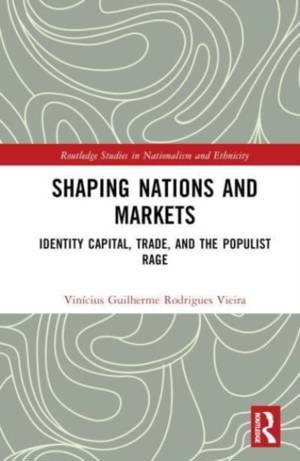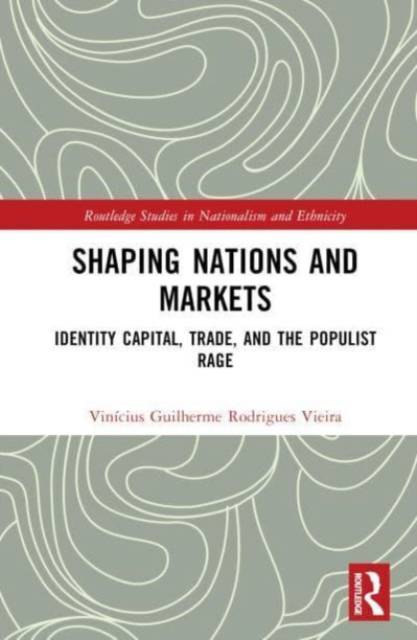
- Afhalen na 1 uur in een winkel met voorraad
- Gratis thuislevering in België vanaf € 30
- Ruim aanbod met 7 miljoen producten
- Afhalen na 1 uur in een winkel met voorraad
- Gratis thuislevering in België vanaf € 30
- Ruim aanbod met 7 miljoen producten
Shaping Nations and Markets
Identity Capital, Trade, and the Populist Rage
Vinícius Guilherme Rodrigues VieiraOmschrijving
Shaping Nations and Markets employs a mixed methods approach to contend that economic ideas, organization of domestic interests and their economic power, asymmetries of information, and political institutions do not sufficiently explain the formation of national interests in processes of trade liberalization.
The author proposes that something is missing-identity capital-which also empowers economic sectors that share either liberalizing or protectionist interests. Identity capital is an economic sector's contribution to the stability of a national identity narrative; it correlates with the degree to which the workforce of any sector represents the dominant conception of national identity. Identity capital creates political power asymmetries among those sectors and impacts the formation of populist movements in both developed and developing states. This book offers a theoretical framework to unpack national identity, trade liberalization, nationalist-populism, domestic politics, and globalization. The author argues that the key for identifying whether liberalizing or protectionist coalitions prevail in trade negotiations is identity capital. He offers a comparison of the three largest contemporary, federal, multicultural democracies: Brazil, India, and the United States, from the Doha Development Round of the World Trade Organization (WTO) in 2001, to the rise of populism in these countries in recent years.
This book will be of great interest to graduate students and scholars of international relations, international studies, political science, comparative politics, and economic sociology.
Specificaties
Betrokkenen
- Auteur(s):
- Uitgeverij:
Inhoud
- Aantal bladzijden:
- 314
- Taal:
- Engels
- Reeks:
Eigenschappen
- Productcode (EAN):
- 9781032386195
- Verschijningsdatum:
- 15/09/2023
- Uitvoering:
- Hardcover
- Formaat:
- Genaaid
- Afmetingen:
- 156 mm x 234 mm
- Gewicht:
- 639 g

Alleen bij Standaard Boekhandel
Beoordelingen
We publiceren alleen reviews die voldoen aan de voorwaarden voor reviews. Bekijk onze voorwaarden voor reviews.











